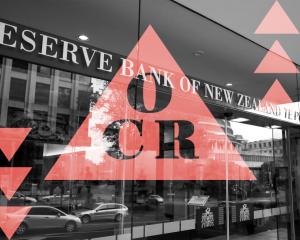When Steve Barclay moved to Sydney to promote Hong Kong as a safe and welcoming market for small and medium enterprises, he did not expect to have to do much convincing.
However, he has found plenty to do as many of the people he has talked to since late last year believe Hong Kong is now "just another Chinese city".
"Very few people realise we operate pretty much the same as it was. It is important to spread the word and when I do that, I am finding a certain amount of interest."
Mr Barclay, the director of the Hong Kong Economic and Trade Office in Sydney, was in Otago recently, visiting Queenstown, Cromwell and Dunedin to meet chambers of commerce, wine growers and the University of Otago to talk about what Hong Kong could offer the province's manufacturers, business people and educational institutes.
The Hong Kong-New Zealand free trade agreement already made Hong Kong an attractive trade destination. The double tax agreement between the two countries also removed any worry about being taxed twice on the same income.
Hong Kong manufactured almost nothing and produced almost nothing its residents consumed, he said.
"We make our living from services."
Hong Kong International Airport was one of the largest and busiest in the world, the Hong Kong container port was one of the busiest and most effective in the world although it was losing its ranking as other mainland China ports expanded.
But Hong Kong remained the pre-eminent financial city in its time zone and was still ranked third behind London and New York, Mr Barclay said.
The Hong Kong financial district was also at the forefront of internationalising the Chinese RMB currency.
"Hong Kong is becoming the gateway to China for foreign companies going into the mainland market and for Chinese companies moving into the wider world."
Among other advantages for New Zealand companies looking to export into the larger China market was that Hong Kong was located at the mouth of the Pearl River Delta, one of the richest economic zones in China.
English was still one of the official languages, the rule of law, common law - including commercial - were familiar to New Zealanders and there was an independent and fair judiciary.
"We still have a fair team of Australian and New Zealand judges and magistrates on the bench."
Hong Kong had a small and efficient public service and its own currency which was fully convertible, Mr Barclay said.
Another advantage was the low and simple tax system, with company tax at 16.5% and personal tax at 15%. Only income earned in Hong Kong was taxed. There was no sales tax, capital gains tax or tax on dividends.
Asked how Hong Kong could offer such low tax rates, Mr Barclay said the Government had decided a long time ago to keep ownership of all the land and had not sold any as freehold. It made a lot of money from stamp duty and share transactions. Low tax also discouraged tax avoidance, as people did not mind paying their fair share at a low rate.
Hong Kong was able to offer subsidised public housing and 12 years of free education.
Mr Barclay said very few people realised Hong Kong had remained about the same as it was before it was handed back to China.
He had found a considerable amount of interest in Otago in investigating more export opportunities to Hong Kong.
"For small and medium-sized enterprises, getting into China for the first time is a daunting test. There is language, cultural differences and a legal system to get through."
Hong Kong was a low-risk, comfortable entry point to China with a system very familiar to New Zealanders and Australians, he said.
Steve Barclay
• Was first appointed to the Hong Kong Government when he joined the Hong Kong police force as an inspector in 1979. He transferred to the civilian service in 1982 when he became an administrative office.
• Has held posts with policy responsibilities covering consumer protection, intellectual property and solid waste management. He has served as a district office in Hong Kong and also as Hong Kong's economic and commercial representative in Brussels.
• Is now director of the Hong Kong Economic and Trade office, Sydney.












